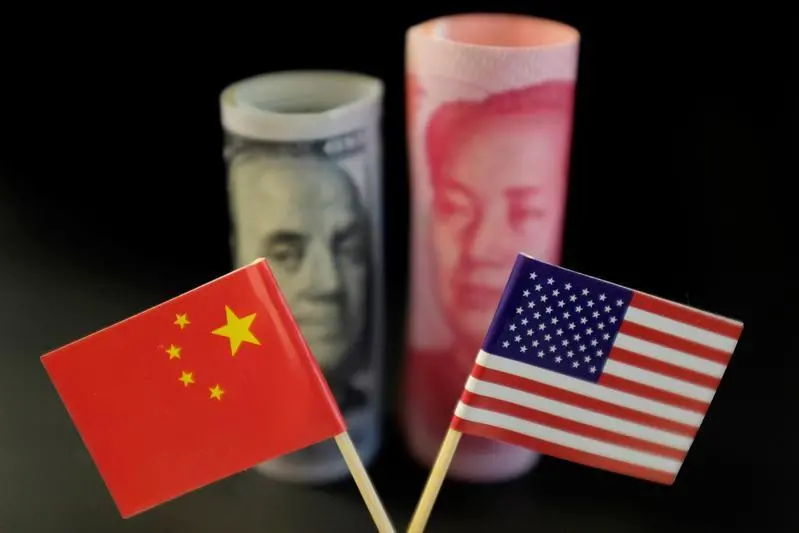PHOTO
SAN FRANCISCO - The decision to label China a currency manipulator boxes in Donald Trump and Xi Jinping. The U.S. Treasury Department made the move after Beijing allowed the yuan to slide below the key level of 7 to the dollar. It’s the first such designation for the People’s Republic since 1994. The sudden escalation will make it harder for both sides to reach a trade truce.
Trump has been lashing out at China over the last week. On Thursday, he threatened to impose a 10% levy on an additional $300 billion in Chinese goods after accusing Beijing of failing to fulfill its promise to buy more American farm goods and stop the sale of fentanyl. Those issues are important to his political base as he gears up to seek re-election in 2020.
Monday’s move dramatically upped the pressure. Previous U.S. administrations had resisted labelling China a manipulator, and Treasury declared in a May report that China wasn’t weakening the yuan. But Treasury Secretary Steven Mnuchin came back empty-handed from trade talks in Beijing last week, and Trump tweeted that China was stealing American businesses and factories with its moves.
The yuan did fall to its weakest level since 2008. The People’s Bank of China said “protectionism and tariffs” played a role in the slide. But depreciation is also a rational market reaction to the deteriorating Chinese economy. Meanwhile U.S. stocks fell about 3% on Monday and yields on Treasury bonds plunged to the lowest levels in nearly three years.
It’s unclear how Treasury made its determination. Under a 2015 law, a major U.S. trading partner can be classed as a manipulator if it undertakes one-sided intervention in currency markets, has a current account surplus of at least 2% of GDP and a bilateral trade surplus of at least $20 billion. The May report said China met only one of those criteria, and Beijing has intervened at times to strengthen the yuan, not weaken it, in recent years.
The immediate practical consequences may be limited. Tariffs after a year of talks are the most significant sanction Washington can impose. But Trump has been urging Xi to quickly seal a trade deal instead of waiting until after the 2020 election. He also wants China to buy more agricultural products. It’s hard to see Beijing suddenly coming around now that Tariff Man has morphed into Currency Man.
CONTEXT NEWS
- The U.S. Treasury Department on Aug. 5 labeled China a currency manipulator after the yuan depreciated below seven to the U.S. dollar, a line that the People's Bank of China and state-owned banks had held for more than a decade. Treasury Secretary Steven Mnuchin will engage with the International Monetary Fund to eliminate “the unfair competitive advantage created by China’s latest actions,” the department said in a statement.
- It’s the first time the U.S. government has classified China as a manipulator since 1994. Trump tweeted on Aug. 5 that China has always used currency manipulation to “steal” American businesses and factories. The Chinese central bank said in a statement that the yuan move was due to the impact of “unilateralism, protectionism and tariffs”.
(Editing by Tom Buerkle and Katrina Hamlin) ((gina.chon@thomsonreuters.com; Reuters Messaging: gina.chon.thomsonreuters.com@reuters.net))





















